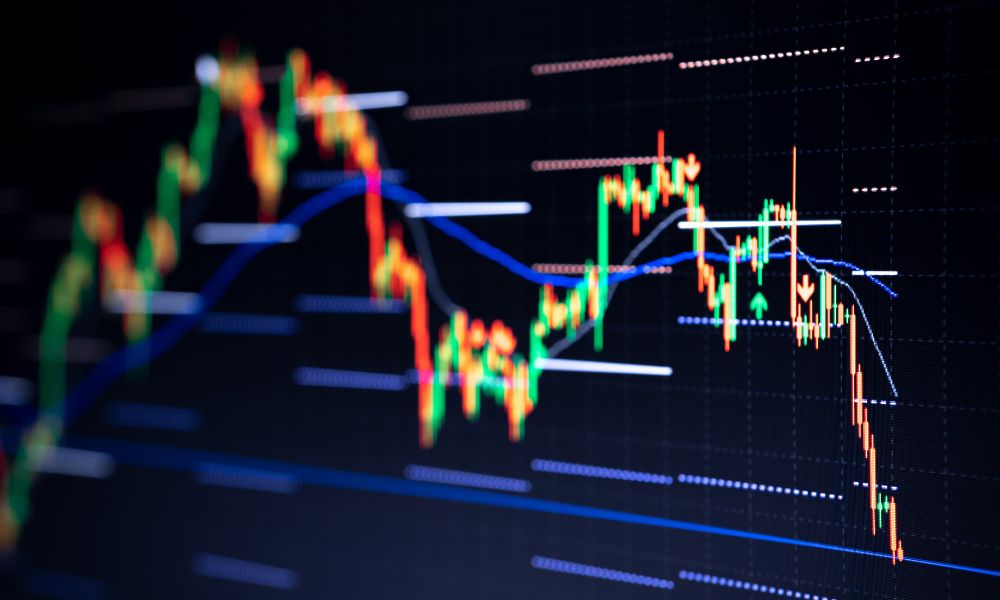
Forex
On this page, you can find in-depth information about Forex Trading. Whether you're a complete beginner looking to explore currency trading or an experienced trader seeking fresh insights, TradingSheets.com is your go-to resource for mastering Forex strategies.
67% of retail investor accounts lose money when trading CFDs with this provider.
Forex trading means buying one currency while selling another. It’s short for “foreign exchange,” and it’s the largest financial market in the world. Every day, trillions of dollars are exchanged across currencies like the US Dollar (USD), Euro (EUR), and Japanese Yen (JPY).
Unlike the stock market, the forex market is open 24 hours a day, five days a week. And because it’s so liquid and active, there are plenty of opportunities for traders around the globe.
What Is Forex Trading?
Forex trading is all about currency pairs. You’re not buying a single currency—you’re trading one against another. For example:
- EUR/USD = Euro vs. US Dollar
- GBP/JPY = British Pound vs. Japanese Yen
If you think the Euro will go up against the Dollar, you “buy” EUR/USD. If you think it’ll go down, you “sell” it. The aim is to make a profit from small price movements.
You don’t need to own the currencies. Most people trade forex using CFDs (Contracts for Difference) or on platforms that offer margin and leverage.
Why Is Forex Trading So Popular?
Here’s why so many people are drawn to forex:
- Open 24/5 – Trade any time, day or night
- Low entry cost – Start with as little as $100
- Leverage – Control larger trades with less money
- High liquidity – Enter and exit trades fast
- Tight spreads – Especially on major pairs like EUR/USD
Forex Market Sessions
The market runs in 3 main sessions:
| Session | Major Cities | GMT Hours |
|---|---|---|
| Asian | Tokyo, Sydney | 11 PM – 8 AM |
| European | London, Frankfurt | 7 AM – 4 PM |
| American | New York, Toronto | 12 PM – 9 PM |
The London-New York overlap (12 PM – 4 PM GMT) is the most active, with high volume and volatility.
Most Traded Currency Pairs
- Major Pairs – EUR/USD, GBP/USD, USD/JPY, USD/CHF
- Crosses – EUR/GBP, AUD/NZD
- Exotics – USD/TRY, EUR/ZAR (more risky and volatile)
New traders often start with EUR/USD due to its low spread and predictable behavior.
How to Start Forex Trading
- Pick a regulated broker (FCA, CySEC, ASIC)
- Open an account – Verify your ID and address
- Use a demo account first to practice risk-free
- Fund your account with a small amount to start
- Download a platform – MetaTrader 4, MT5, or cTrader
- Start trading using real-time charts and strategies
Common Trading Strategies
Day Trading
Open and close trades within the same day. Fast-paced and based on short-term charts like 5-minute or 15-minute.
Swing Trading
Hold positions for a few days to catch medium-term moves. Great for part-time traders.
Trend Following
Buy when the market is moving up, sell when it’s going down. Use tools like moving averages and RSI.
Carry Trading
Trade based on interest rate differences between currencies. More long-term and sensitive to central bank policies.
Key Terms to Know
- Pip – The smallest price move, usually 0.0001
- Lot – A trade size (standard: 100,000 units)
- Leverage – Borrowed funds to increase trade size
- Margin – Your capital used to open a trade
- Stop-Loss – Auto-close a trade to limit losses
- Take-Profit – Auto-close a trade when profits hit your target
Risk Management Tips
- Never risk more than 1-2% of your capital on one trade
- Always use stop-loss orders
- Use lower leverage (like 10:1 or 20:1) when starting out
- Don’t trade emotionally—stick to your plan
- Review your trades weekly to learn and improve
Is Forex Trading Profitable?
It can be—if you take it seriously. The biggest mistake beginners make is trading without a plan. Success in forex trading comes down to:
- Strategy
- Discipline
- Risk control
- Patience
It’s not a shortcut to riches, but a skill you can develop over time.
Final Thoughts
Forex trading is flexible, exciting, and accessible. Whether you’re aiming for short-term gains or long-term growth, it all starts with understanding the basics. Learn the tools, manage your risk, and practice consistently.
It’s not about predicting the market—it’s about managing your reactions to it.
How To Start Trading In 15 Minutes
Start Your Trading Journey with capital.com
Open a Real Money Account
Sign up with capital.com and start trading Forex with as little as $100.
Open a Real AccountOR
Practice with a Demo Account
Not ready to trade with real money? Start practicing with capital.com’s demo account.
Open a Demo AccountCFDs are complex instruments and come with a high risk of losing money rapidly due to leverage. 67% of retail investor accounts lose money when trading CFDs with this provider. You should consider whether you understand how CFDs work and whether you can afford to take the high risk of losing your money.












